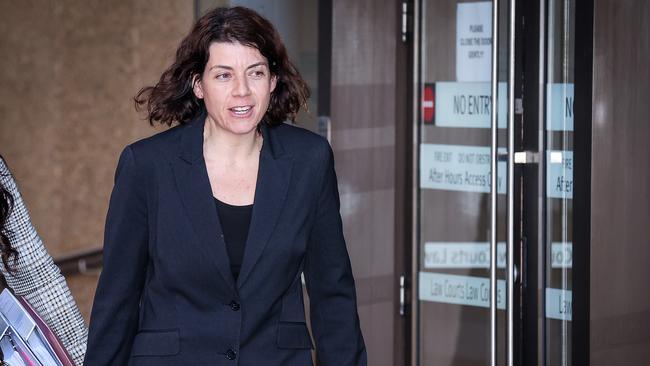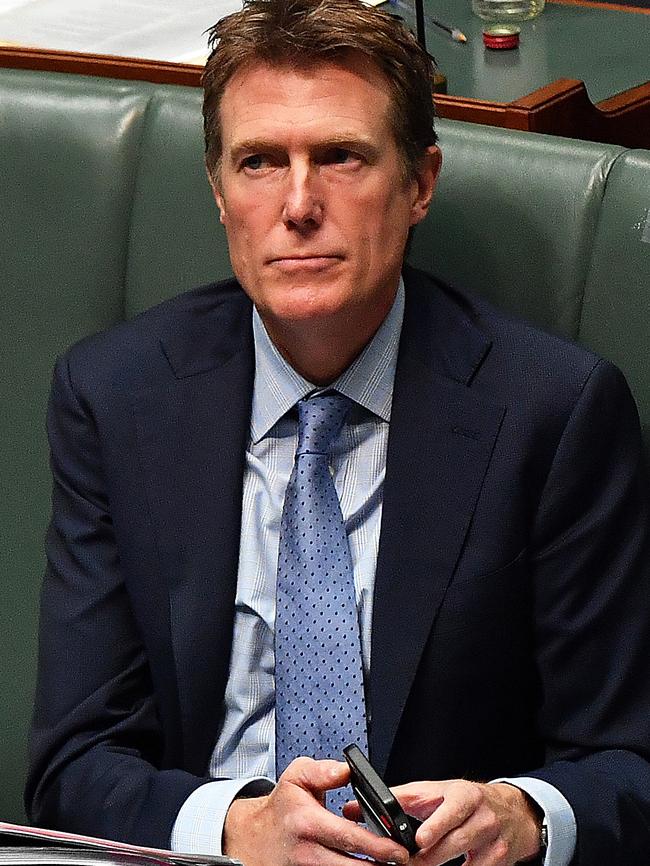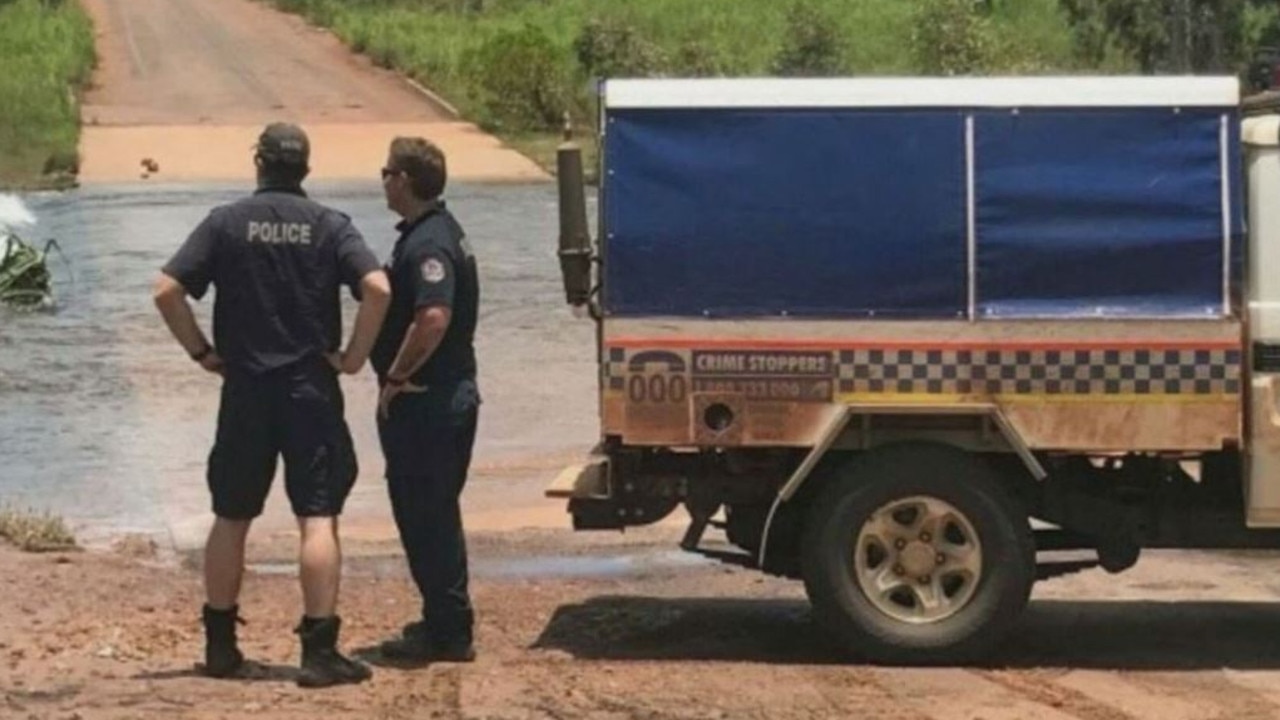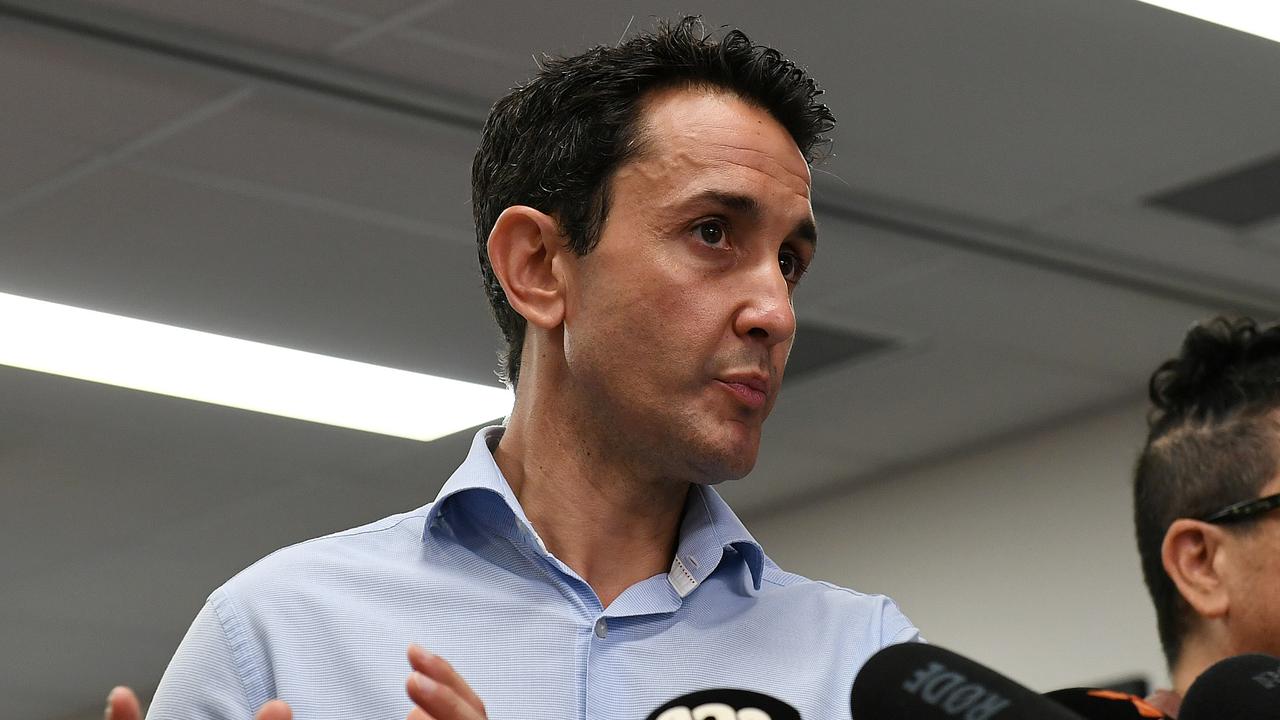Christian Porter barrister: there is no conflict
Christian Porter’s high-profile defamation barrister says she only met with a friend of his alleged rape victim as a ‘favour’.

Christian Porter’s high-profile defamation barrister has denied any conflict of interest in her acting for the former attorney-general, and says she only met with a friend of his alleged rape victim as a “favour” to a fellow barrister.
Jo Dyer, director of the Adelaide Writers Week, is seeking orders in the Federal Court to stop barrister Sue Chrysanthou SC from representing the former attorney-general in his defamation action against the ABC.
Ms Chrysanthou, who has previously represented actor Geoffrey Rush and Greens senator Sarah Hanson-Young, has been accused of having access to confidential information related to Mr Porter’s case against the ABC provided to her while she was advising Ms Dyer on another matter.
However, in court documents, Ms Chrysanthou’s lawyers say she cannot recall any confidential information given to her by Ms Dyer during a November 20 meeting and has denied that acting for Mr Porter is against Ms Dyer’s interests.
Ms Dyer argues Ms Chrysanthou should be removed from Mr Porter’s defamation case against the ABC to prevent the misuse of her confidential information and to protect the proper administration of justice.
Ms Dyer attended a meeting at Ms Chrysanthou’s chambers at 10am on November 20, along with Macquarie Group senior managing director James Hooke — an ex-boyfriend of Mr Porter’s alleged rape victim — and another lawyer. They “candidly discussed” a number of matters, within the confines of a “lawyer-client relationship”, Ms Dyer’s court documents say.
Ms Chrysanthou says she agreed to the meeting as a favour to fellow media barrister Matthew Richardson, son of former Labor minister Graham Richardson, who was also at the meeting.
Mr Richardson is a close friend to Ms Chrysanthou and a university friend of Mr Hooke.
Ms Chrysanthou did not bill for her time and never agreed to act in any proceedings, she says. Ms Dyer says that while Ms Chrysanthou was acting for her pro bono, the basis on which she was acting would be “revisited” if proceedings were commenced.
The Australian has previously revealed that Ms Chrysanthou reviewed a legal letter sent on Ms Dyer’s behalf to The Australian on November 26, claiming an opinion piece written by columnist Janet Albrechtsen had defamed her.
Ms Chrysanthou says she gave further advice to Ms Dyer on January 27 and 28.
However, Ms Dyer’s lawyers allege Ms Chrysanthou continued to communicate with them about her advice to Ms Dyer until March 4 — just six days before she accepted Mr Porter’s brief.
She informed Ms Dyer’s lawyer, Marque Lawyers managing partner Michael Bradley, that she was acting for Mr Porter on March 15 — the day he launched defamation action against the ABC.
Ms Chrysanthou’s court documents say that she did not seek Ms Dyer’s consent to act for Mr Porter, but that she did not need to.

Mr Porter, now Industry Minister, is suing the ABC and journalist Louise Milligan over an online article published on February 26, which reported that an unnamed cabinet minister was facing historical rape allegations.
Mr Porter, 50, outed himself as the unnamed minister five days later and launched the defamation action on March 15.
Ms Dyer was a friend of a woman, known as Kate, who alleged she had been raped by Mr Porter in 1988 when she was 16 and Mr Porter was 17. Kate committed suicide in June last year.
Ms Dyer has “no relevant interest” in Mr Porter’s case against the ABC “given she is not and will never be a party to it”, Ms Chrysanthou maintains.
In the “little time” she spent with Ms Dyer on November 20, she formed no view on Ms Dyer’s strengths, weaknesses, honesty, knowledge or beliefs.
Despite this, she had offered an undertaking not to cross-examine Ms Dyer should she be called as an ABC witness, her court documents say.
Ms Chrysanthou has denied she has “failed in her duties as a barrister” in relation to Mr Porter or Ms Dyer, or that she has any relevant confidential information that belongs to Ms Dyer.
She believes she is prevented under the barrister’s “cab rank rule” — which requires barristers to accept a brief if they are available and competent to act — from returning Mr Porter’s brief, and says that should any confidential information come to mind, she will not disclose it.
She says she has an obligation to inform Mr Porter of everything she knows relevant to his case, unless he gives his “informed consent” that she not use it.
Mr Porter’s lawyers say in court documents that the former attorney-general has consented to her not sharing any confidential information she obtained from Dyer.
Mr Porter’s barrister Christopher Withers SC told the Federal Court this week it would be a “very, very big deal” for the former attorney-general to be deprived of Ms Chrysanthou’s services.
This was because of the amount of time she had already spent on the case — “hundreds of hours”, according to Mr Porter — the costs incurred, and her specialist defamation skills among “a very limited field”.
The potential for his defamation trial against the ABC occurring this year could also be “jeopardised” if she were removed, he said.
Barrister Michael Hodge SC, representing Ms Dyer, told the Federal Court on Wednesday that any information provided by Ms Dyer to Ms Chrysanthou during a meeting on November 20 was confidential because of the nature of their lawyer-client relationship.
However, Mr Withers said Mr Porter did not accept that a lawyer-client relationship existed. It was possible for a barrister to “function as a sounding board”, which fell short of an actual retainer, he said.
Mr Porter has previously criticised the timing of Ms Dyer’s legal action, ahead of a key preliminary hearing in his case against the ABC, but Ms Dyer has denied there was any delay.
Ms Dyer’s lawyers expressed concern on March 15 about Ms Chrysanthou having Ms Dyer’s confidential information, but did not ask her to return the brief, according to Ms Chrysanthou.
On March 24, Ms Chrysanthou was asked to stop acting for Mr Porter but refused.
In April, Ms Dyer’s lawyers twice threatened legal action, and on May 10 finally commenced proceedings to stop her acting.
Ms Chrysanthou told Mr Bradley she had sought advice from Mr Walker and two other silks about whether she should accept the brief, according to Ms Dyer’s court documents.
Federal Court judge Tom Thawley will preside over a three-day hearing commencing on Monday to decide whether Ms Chrysanthou should be restrained from acting for Mr Porter in his case against the ABC.
Details of the confidential information said to have been provided to Ms Chrysanthou have been redacted from court documents, and kept from Mr Porter’s legal team.
However, Mr Porter is challenging Ms Dyer’s assertion that any information she provided to Ms Chrysanthou was actually confidential.
Ms Dyer had discussed the allegations against Mr Porter “widely and publicly”, Mr Porter’s lawyers say. Details of dozens of her tweets and public statements have been reproduced in Mr Porter’s court documents.
Ms Dyer has been ordered to hand over copies of her communications with other people that disclosed any of the information she has alleged was confidential.
Ms Chrysanthou has been ordered to hand over copies of any documents related to whether she should accept Mr Porter’s brief.




